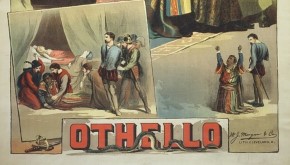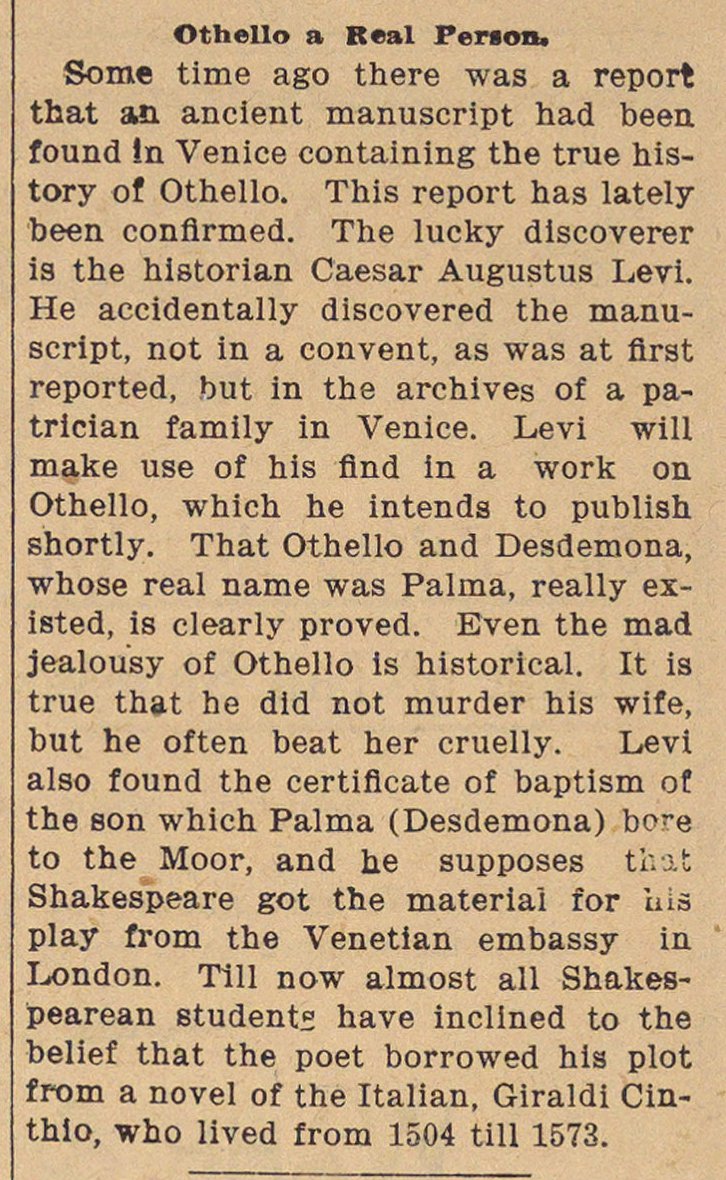
Othello cannot see the reality of the evil beneath a mask that in some ways is similar to his own, and instead misinterprets each frank gesture of his devoted wife as proof of the diabolical mask of an accomplished adulteress. Iago's mask hides the fact that he is a sociopath motivated by jealousy and rage. Othello's mask hides a snake's nest of fears, fears bred from the insecurity of being a black man in an alien white society.

#OTHELLO TEXTS AND CONTEXTS PROFESSIONAL#
Iago wears a similar mask: the mask of the thoroughly professional military subordinate who is frank and blunt and incapable of dishonesty. Othello is a man who always wears a mask in public: the mask of the thoroughly professional military leader who is far too noble to be moved by emotions which might cause others to be petty or untrustworthy. During this reading, however, I began to realize that Othello is much more than the greatest of melodramas, and that the key to appreciating its depth lies in the concept of the public mask. Shaw remarked that Othello is written "in the style of Italian opera," and it shares with Verdi and Donizetti the same big emotions, the same clear demarcation of good and evil, that give Lucia and Trovatore their emotional intensity-and their lack of essential seriousness too. I have always admired this play as Shakespeare's most theatrical tragedy, but I also feel that it often veers too close to melodrama. There have been plays and sonnets attributed to Shakespeare that were not authentically written by the great master of language and literature. Shakespeare's writing average was 1.5 plays a year since he first started writing in 1589. His plays remain highly popular today and are consistently performed and reinterpreted in diverse cultural and political contexts throughout the world.Īccording to historians, Shakespeare wrote 37 plays and 154 sonnets throughout the span of his life. In the twentieth century, his work was repeatedly adopted and rediscovered by new movements in scholarship and performance. The Romantics, in particular, acclaimed Shakespeare's genius, and the Victorians hero-worshipped Shakespeare with a reverence that George Bernard Shaw called "bardolatry". Shakespeare was a respected poet and playwright in his own day, but his reputation did not rise to its present heights until the nineteenth century. Many of his plays were published in editions of varying quality and accuracy during his lifetime, and in 1623, two of his former theatrical colleagues published the First Folio, a collected edition of his dramatic works that included all but two of the plays now recognised as Shakespeare's. In his last phase, he wrote tragicomedies, also known as romances, and collaborated with other playwrights. Next he wrote mainly tragedies until about 1608, including Hamlet, King Lear, and Macbeth, considered some of the finest examples in the English language. His early plays were mainly comedies and histories, genres he raised to the peak of sophistication and artistry by the end of the sixteenth century.

Shakespeare produced most of his known work between 15. Few records of Shakespeare's private life survive, and there has been considerable speculation about such matters as his sexuality, religious beliefs, and whether the works attributed to him were written by others. He appears to have retired to Stratford around 1613, where he died three years later. Between 15 he began a successful career in London as an actor, writer, and part owner of the playing company the Lord Chamberlain's Men, later known as the King's Men. Scholars believe that he died on his fifty-second birthday, coinciding with St George’s Day.Īt the age of 18 he married Anne Hathaway, who bore him three children: Susanna, and twins Hamnet and Judith. Shakespeare was born and raised in Stratford-upon-Avon. His plays have been translated into every major living language, and are performed more often than those of any other playwright. His surviving works consist of 38 plays, 154 sonnets, two long narrative poems, and several other poems. He is often called England's national poet and the "Bard of Avon" (or simply "The Bard").

William Shakespeare (baptised 26 April 1564) was an English poet and playwright, widely regarded as the greatest writer in the English language and the world's pre-eminent dramatist.


 0 kommentar(er)
0 kommentar(er)
